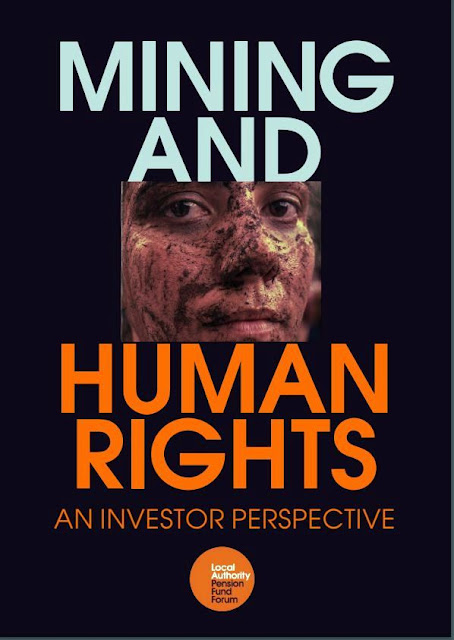Launch
of Labour Rights Investor Network coincides with event at US Department of Labor
The Labour
Rights Investor Network (LRIN) is a global initiative
that brings together asset managers, asset owners and investment service
providers committed to integrating labour rights into their stewardship
practices. LRIN signatories include the New York City Employees’ Retirement
System and Teachers’ Retirement System, Sweden’s Folksam and the UK-based Local
Authority Pension Fund Forum.
The
launch of the Network coincides with an event at the US Department of Labor
aimed at highlighting how businesses and investors can become more resilient
and competitive by harnessing the growing global movement for worker voice. The
event, “New Frontiers for Empowering Workers and Business,” will feature Acting
Secretary Julie Su alongside New York City Comptroller Brad Lander,
representatives from Microsoft and others from the labour and business
communities.
The
Network’s guiding Investor Statement notes that
labour rights are “fundamental pillars of human freedom,” as recognized by the
United Nations (UN) and the Organisation for Economic Co-operation and
Development (OECD).
Beyond
the fundamental nature of the rights to freedom of association and collective
bargaining, members of the Network also recognize the investor case for
empowering workers. “Companies that respect labour rights reap many benefits,
such as greater productivity, safer workplaces, and improved employee
engagement,” according to the LRIN Investor Statement. The LRIN is housed at
the Global Unions’ Committee on Workers’ Capital (CWC), a committee of the
International Trade Union Confederation, the Global Union Federations and the
Trade Union Advisory Committee to the OECD that advocates for the responsible
investment of workers’ capital.
“With
this Network, we will bring the voices of workers whose fundamental labour
rights are violated to the attention of investors committed to ensuring those
rights are upheld in their portfolios. This will enable those investors to improve
their human rights due diligence, mitigate risks and uphold responsibilities
under international norms and frameworks,” said CWC Chair Christoffer Jönsson.
Signatories
to the Investor Statement request that the boards and senior management at
investee companies take responsibility for labour rights oversight, ensure respect
for workers’rights to freedom of association and collective bargaining, and
provide disclosures on labour-related metrics.
The
Labour Rights Investor Network will then provide the necessary information and
tools for investor members to integrate this into their stewardship practices.
Investor Quotes
“As financial stewards responsible for the retirement
savings of thousands of unionized workers, we want to ensure that the companies
in which we invest our capital are in turn investing in their workforces.
Ignoring fundamental workers’ rights risks eroding long-term shareholder value.
The historic movement to ensure labour rights are respected has led to
measurable gains for hundreds of thousands of workers. We are proud to stand
boldly with the Committee on Workers’ Capital to announce this important
initiative, which centres respecting labour rights as a business imperative key
to mitigating systemic risks.”
—
BRAD LANDER, NEW YORK CITY COMPTROLLER
“We are delighted to be an early signatory to Labour
Rights Investor Network, as we see the real value it will bring to
strengthening our stewardship. We expect investee companies to respect freedom
of association and collective bargaining, but know far too often this fails to
happen in reality. Through gaining resources and hearing insights directly from
unions, we believe that the Labour Rights Investor Network will help us address
the problem.”
—
EMILIE WESTHOLM, HEAD OF RESPONSIBLE INVESTMENTS AND CORPORATE GOVERNANCE,
FOLKSAM
—
COUNCILLOR DOUG MCMURDO, LAPFF CHAIRMAN
https://www.workerscapital.org/labour-rights-investor-network/



















